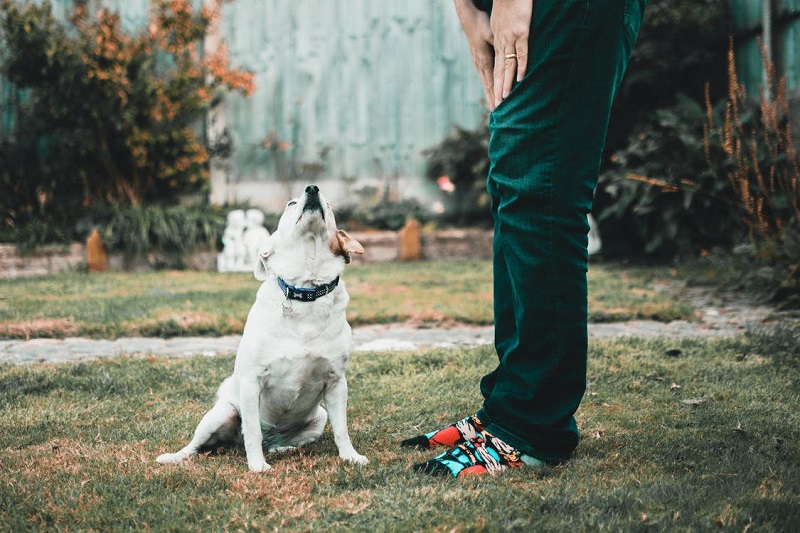Every dog owner wants to see their pet happy and healthy. Unfortunately, there are times when the dog might get sick and will need medical assistance, treatment and proper care. One of the most common health problems dogs might encounter in their lifetime is intestinal worms.
They often go unnoticed because the symptoms might not present themselves, but regular visits to the vet will surely help your dog a lot. These intestinal worms will find a host, in this case, your dog, and invade their intestines and cause a whole host of problems. Luckily, there’s worm treatment for dogs that will help your pet get through this tough time.
How Do You Know If Your Dog Has Worms?

Symptoms of dog worms can vary from one dog to another depending on the type of worm they got and how old are they. The dog may even not present any symptoms or just a few of them. One of the most common signs is diarrhea. It may be bloody or filled with mucus, so if you spot something like this check with the vet immediately.
In the meantime, choose the right puppy nappies to keep any secretion away from the environment. Another symptom is a bloated stomach, which can be a tricky one to notice. An itchy bottom is a potential sign of intestinal worms. This will cause the dog to scratch its bottom on the carpet or any surface because it’s the only way they can do it.
The dog may even vomit or be lethargic. If you notice that it stopped playing, and is not as happy and cheerful as it usually is, it may be a sign of worms. Nutritional deficiencies, dehydration and weight loss are also something to look out for.
And if the dog is in a serious stage of dog intestinal infection it may cough, have a blocked intestine or even pneumonia. If you notice any of these symptoms arrange a meeting with the vet, collect a recent stool sample and consult on the further steps you should take.
Worming Treatment
Worming tablets are one of the most effective ways to get rid of those uncomfortable parasites. They will prevent the transmission of serious illnesses, but remember, they won’t stop the dog from infecting once again. They just kill any worms that might be present in the dog’s abdomen.
To ease the symptoms, you should get some easily dosed dog worming tablets will give your puppy the perfect treatment. Most of them work by causing a state of hyperexcitability in the parasite which starts with muscle contractions, tremors, paralysis and finally death of the parasite.
The 2 main ingredients are milbemycin oxime and afoxolaner. Both of them work together to kill the worms and their still immature versions inside by attacking their nervous system. Dogs should take these tablets together with their meal, or right after they’ve eaten.
Consult with your vet about the dosage because it depends on the dog’s weight, but one tablet a day is enough for almost every breed. The healing and de-worming process usually last around 1-2 months, but it can vary according to the dog’s weight, lifestyle, where it lives and age.
Types of Dog Worms

There are several species of worms that can find their way to your dog. It mostly depends on the place where you live, although it’s generally not the deciding factor. The symptoms they cause can vary from one type to another.
Roundworms
This is the most common type of worm that inhabits your dog, especially when it’s a puppy. Adult roundworms feed on the food in the intestinal tracts where they live. It’s round in shape, light-brown to white in colour, and the adult roundworm can be around 10cm long.
Adult dogs get them from eating infected prey or contaminated soil, while puppies are born with them from their mother’s uterus. When the larvae are inside the dog it travels to its lungs, gets coughed up and then swallowed. This leads them to the intestines where they lay their eggs that get out with the dog’s stool waiting for another host to repeat the cycle.
Hookworms
The hookworm uses its razor-sharp teeth to cling to the intestinal mucosa of its victim and feeds by sucking blood. Roundworms are far larger than hookworms, and you can rarely see them in vomit or in the dog’s stool. Contaminated soil is the most common cause of infection.
These larvae grab and burrow through the dog’s skin or its paws when it’s walking or lying on the ground. As with roundworms, puppies can get their hookworms from their mother’s milk. These worms live and mate in the small intestine and the eggs get into the environment through the dog’s stool.
Whipworms
Whipworms are another common type of dog parasite. They live in the large intestine, bite the tissue and embed its head inside. Just like hookworms, they feed on the blood of the host to stay alive. They are smaller than roundworms and often not noticeable in stool and vomit.
Again, the most common source of these parasites is infected soil. Dogs can get infected by grooming themselves or just by laying on the ground. The eggs that the dog ingests go through the upper GI tract and end up in the small intestine where they hatch. These larvae move to the large intestine and live and develop there.
Tapeworms
Tapeworms are long intestinal parasites that get attached to the small intestine of the dog. It can be around 10cm long but it has grown into several segments. Each of those segments has its own reproductive tract. The only way to get these worms is by ingesting fleas.
Fleas feed on dirt and debris and if there are tapeworm eggs, they’ll consume them as well. The eggs will develop into the flea and when the dog eats it stays in its body, in its small intestine to be exact. The end segments of the worm detach and leave the dog’s body through its rectum. The cycle repeats if fleas are around.
How to Prevent Reinfection

For a lot of dogs, veterinarians recommend ingesting dog worming tablets throughout the whole year. This is the most common type of prevention that vets use depending on the soil where you live, the dog’s age and its lifestyle.
Another way to prevent reinfection is by scooping up the poo as soon as the dog is done. Avoid areas where there are animal feces. When going on a walk choose parks, beaches and trails that are clean and well maintained. Because these parasites can attack humans as well, teach your children to maintain good hygiene and wash their hands regularly.
The most important thing you can do is to take your dog to regular checkups at the vet. This will discover any possible illnesses, including worms.












